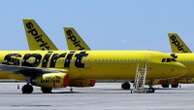Amazon.com and IKEA, in alliance with about three dozen other companies that depend on ocean freight, will invite shipping firms for the first time to bid on a contract in January to move their cargo on vessels powered by near-zero emissions e-fuels like e-methanol.
The group known as the Zero Emissions Maritime Buyers Alliance wants to use the combined clout of its members, who have their own climate goals to meet, to create demand for e-fuels made with renewable electricity and carbon dioxide. Those fuels are in very short supply.
The alliance wants to accelerate the ocean shipping industry’s move toward net-zero greenhouse gas (GHG) emissions by 2050, even as U.S. President-elect Donald Trump is expected to pull out of international commitments to combat global warming.
The world’s fleet moves more than 80% of global trade and contributes about 3% of the world’s GHG emissions. E-fuels are vital to fully decarbonizing ocean shipping because they have long-term potential to compete against fossil fuels on cost and supply, the alliance said.
“This is how you get on path and on track to being net-zero,” said alliance member Carl Berger, who leads sustainability and export operations for Amazon Global Logistics.
The group’s three- to five-year contracts for e-fuel transport are expected to begin in 2027.
The cargo moved under the contract is estimated to be equivalent to at least 1.4 million 20-foot containers transported from Shanghai to Los Angeles. That would enable members to abate some 470,000 metric tonnes of GHG emissions that warm the planet and harm human health, the group said.
Carriers such as Maersk, Evergreen and Ocean Network Express (ONE) have ordered ships that can operate on e-methanol and are working to secure supplies of that fuel.
While alliance members hope their collective action will lower the cost of e-fuels, they expect to pay an undisclosed premium to help offset the higher cost versus fossil fuel.
“Once that market gets going we’ll start to see those costs come down,” alliance CEO Ingrid Irigoyen said of e-fuel.
—Lisa Baertlein, Reuters











No comments